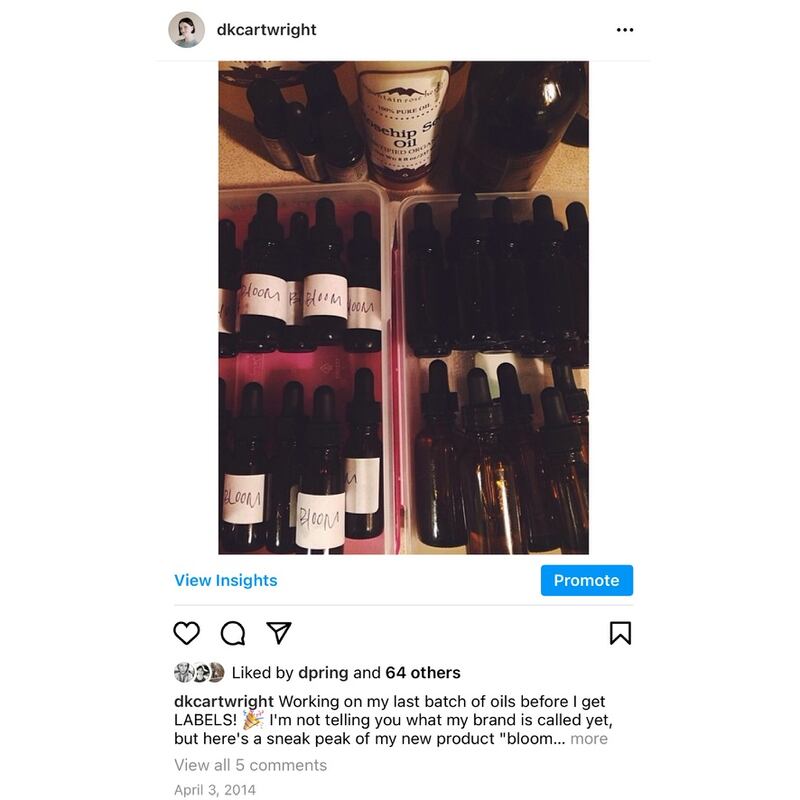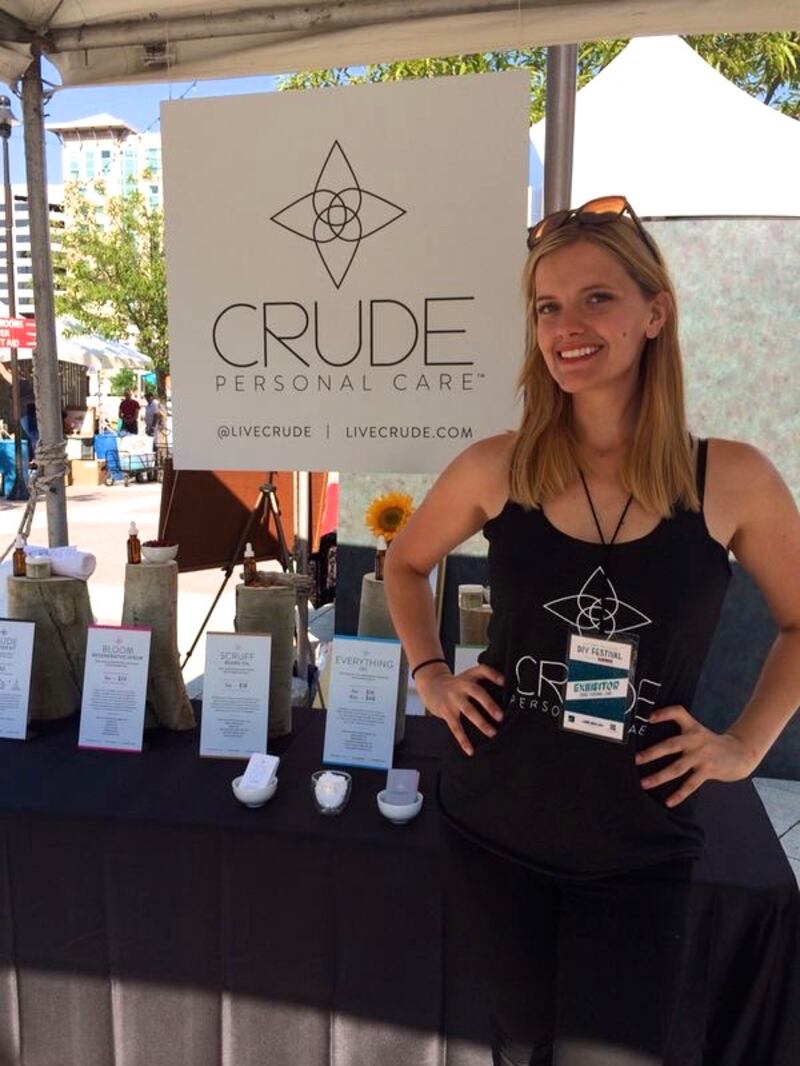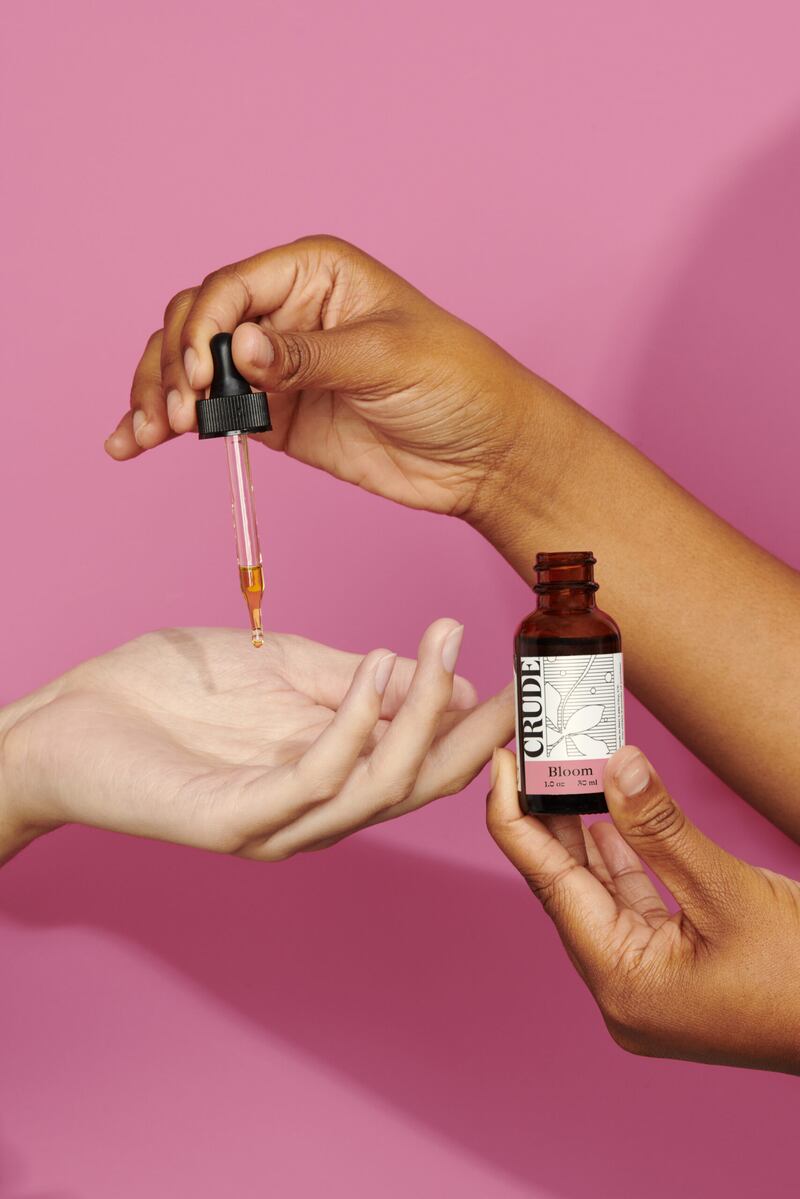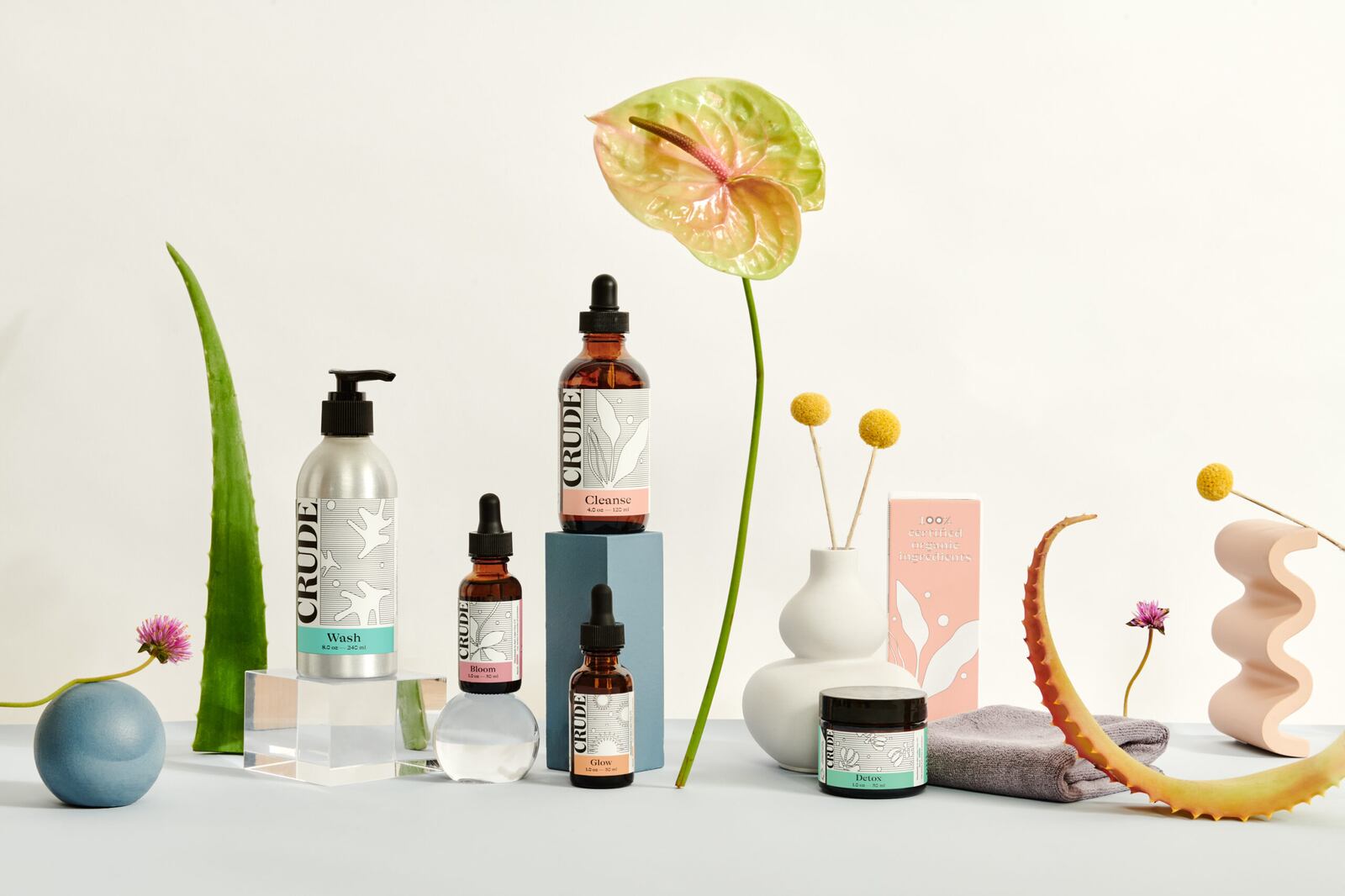In a world obsessed with quick fixes and synthetic solutions, I’ve found solace and success in letting nature take the lead. As a master esthetician with over 16 years of experience, I’ve spent years trying to understand the complex world of inflammatory skin conditions like acne, rosacea and eczema.
Despite my extensive training and access to top-tier products, I struggled with my own skin issues for much of my career. It seemed like almost everything I used made my ultra-sensitive skin break out. The traditional approaches I learned often fell short and sometimes even worsened my clients’ and my own skin. These experiences, coupled with my budding interest in the microbiome — the diverse community of beneficial microorganisms that live on and inside our bodies — led to a pivotal realization: perhaps the key to healthy skin wasn’t in trying to manipulate and outsmart it but in supporting and enhancing its natural defenses.
Oil is your friend
My journey began when I stumbled upon the concept of oil cleansing. This method went against everything I had been taught in esthetics school, where oil was considered the enemy of clear skin.
Desperate for a solution, I decided to give it a try. For a week, I washed and moisturized my face with oil, and to my amazement, my skin cleared up. This simple yet radical shift revealed to me the aggravating, inflammatory effects of the stripping, sudsing cleansers that most of us use and the power of plant-based oils to heal and support the skin’s natural defenses.
Inspired by my personal transformation, I dove deep into researching different types of oils and experimenting with combinations that kept my skin consistently clear. Once I perfected my formula, I began sharing it with my clients. The results were nothing short of remarkable. One by one, they experienced dramatic improvements in their skin health. This was the turning point that led to the birth of CRUDE — a skin care line rooted in the philosophy of letting nature do its thing.
My first batch of oil cleansers cost me $30 in ingredients and was mixed in my small studio apartment in Salt Lake City. As word spread about the effectiveness of my products, demand grew rapidly. Within six months, I realized I had helped more people heal their acne than I had in years of working as an esthetician. CRUDE’s growth is organic and fueled by genuine results, with millions generated in revenue without any venture capital funding or major advertising campaigns.

The microbiome movement
CRUDE works by cleansing, exfoliating and moisturizing the skin without stripping or disrupting its microbiome. Unlike most modern beauty products — which often harm the skin microbiome — our approach preserves and supports this essential ecosystem.
When I launched CRUDE, the concept of the skin microbiome was still in its infancy. Few were discussing the delicate balance of bacteria on our skin and its critical role in overall skin health. Since then, we’ve been featured in major publications such as InStyle, Refinery29 and The Cut, touting the importance of the skin microbiome for long-term skin health.
In 2017, we introduced the first truly soap- and detergent-free body wash to the market. The response was overwhelming. Customers reported not only improved skin conditions like eczema and psoriasis but also unexpected benefits such as relief from chronic bacterial vaginosis and yeast infections.
In 2021, our Wash became the first body wash to be certified microbiome-friendly by MyMicrobiome, setting a new standard in the beauty industry. It was certified to support the healthy microbiome of adult skin, infant skin, and the vaginal tract. These and our other products’ certifications validated what I had intuitively known for years — that supporting the skin’s natural microbiome was key to maintaining healthy, resilient skin. It’s been incredibly rewarding to be at the forefront of this movement and witness the industry slowly catching up to this crucial understanding.
Your skin is your largest organ, a complex and resilient network that evolved alongside the microbiome to heal and regenerate itself. Skin care should support these natural processes, not disrupt them. Our products are designed to work with your skin’s ecosystems, maintaining its natural moisture barrier and promoting long-term health.
It’s time to reconsider our skin care routines and place our trust in the natural processes that have sustained us for millennia. Embracing a more natural, minimal approach to skin care not only promotes healthier skin but also supports a healthier planet. CRUDE is dedicated to pioneering this shift, showing that the best results often come from allowing nature to do its thing.
The unclean history of cleanliness
CRUDE’s mission extends beyond just addressing skin conditions; it challenges the very notion of cleanliness itself. The daily, soap-based shower is actually a relatively new phenomenon. Before the turn of the century, humans primarily used natural ingredients like water, oil and clay to cleanse.
With the advent of modern advertising, soap companies began to shape public perceptions of cleanliness. Some of the very first major ad campaigns were led by soap companies with messaging that framed women and people of color as “unclean” and in need of correction. These early advertisements were so pervasive that they even gave birth to the “soap opera,” as soap manufacturers sponsored radio and television dramas to market their products.
Many of these ads focused on body odor and blamed a woman’s inability to find a husband on her lack of soap use. The sexist soap ads often portrayed women as solely responsible for maintaining household cleanliness and hygiene, reinforcing gender roles and suggesting that a woman’s worth was tied to her ability to keep herself and her home spotless. Additionally, these ads were often overtly racist, even showing images of Black children being washed white. These messages have had a lasting impact, framing light skin as superior and reinforcing damaging stereotypes about gender and race. It’s time to dismantle these outdated beliefs and reframe our understanding of cleanliness and beauty.

Beyond skin deep
To further this mission, we created SOUL, the School of UnLearning. If something as seemingly straightforward as washing our bodies carries so much misinformation and cultural baggage, what other misconceptions do we need to unlearn to connect with our bodies and each other more authentically? SOUL brings together experts, activists and thought leaders who challenge conventional wisdom and inspire healthier, more honest ways of living.
Through SOUL, we host events and programs that support grassroots organizations and diverse content creators, fostering a community dedicated to unlearning harmful practices and embracing a more inclusive approach to skin care and self-care.
In 2021, I also co-founded Save Our Great Salt Lake, a coalition focused on raising awareness about the rapidly shrinking lake and advocating for water conservation in Utah. Our efforts aim to prioritize the preservation of this critical ecosystem, highlighting the interconnectedness of environmental and personal health.
This commitment to broader environmental and societal health is reflected in CRUDE’s approach to sustainability. “Big Beauty” often touts sustainability, but their focus on packaging and recyclability falls short. True sustainability means minimizing waste from the start. CRUDE’s line is intentionally small, with multi-use products and minimal ingredients, reducing our environmental footprint.
My top tips for supporting your microbiome:
1. Eat more fiber. The first step people usually take on their journey toward a healthy microbiome is to buy a probiotic supplement or fermented foods like yogurt or kimchi. While there are certainly benefits to consuming live bacteria, one of the best ways to support your gut microbiome is actually to just increase your fiber intake. Microbes feed on fiber, so this is a great way to keep them happy and healthy while supporting the gut lining. When microbes are starved of fiber, they start to feed on the protective mucus lining of the gut, which can trigger inflammation and disease. Even occasional fiber deprivation in mice leads to a compromised gut lining, which gets thinner and weaker the less fiber they eat.
2. Stop over-cleansing your skin. Just like your gut, your skin has a microbiome. The skin is teeming with living bacteria and fungi that work directly with your immune system to keep your skin and body healthy and in homeostasis — yet most of us wash off these crucial microbes, along with our skin’s natural moisture barrier, with a soap or detergent-based cleanser on a daily basis. Like the gut lining, the skin’s natural moisture barrier is intrinsically tied to the health of the skin and its microbiome. This naturally produced, oily shield protects the body from water loss and pathogenic bacteria and holds essential moisture in the skin. So why do we strip this essential barrier and our flora from our skin with suds?
3. Go outside. A diverse microbiome is a resilient one. Greater diversity of microorganisms is largely correlated with overall health and well-being. One of the best ways to expose yourself to a diverse array of bacteria is to get out of the house. Exposure to soil and a variety of natural environments can increase bacterial diversity and improve the immune system. People who live in urban environments with less biodiversity have a lower diversity of microbes, but access to more biodiverse areas such as green spaces and parks shows major biome benefits.
4. Embrace oil. The outdated belief that oil is bad for our skin has led to an obsession with being “squeaky clean.” Most people in the United States wash with a sudsing, oil-removing soap or detergent-based cleanser at least once a day. This strips your skin of its naturally produced, oil-based “shield,” leaving it inflamed and unprotected and creating your reliance on synthetic moisturizers and creams to replace what was stripped. Once the skin’s protective barrier has been compromised, unwanted agents like allergens and irritants can penetrate the skin and aggravate symptoms associated with inflammatory diseases like acne and eczema. The right facial oil will help repair this protective barrier and help you lock in moisture.
5. Always be flora-focused. The skin barrier is teeming with natural colonies of bacteria and fungi, which work directly with your immune system to regulate, clean and regenerate the skin. Your skin relies on its microbiome (flora), but unfortunately, that’s what we’re washing off our bodies each day when we use soapy cleansers. Don’t get me wrong, hand-washing (the whole 20 seconds!) is an integral part of basic hygiene as well as combating the spread of disease. But daily head-to-toe soap use is wreaking havoc on our bodies — and our biomes.


